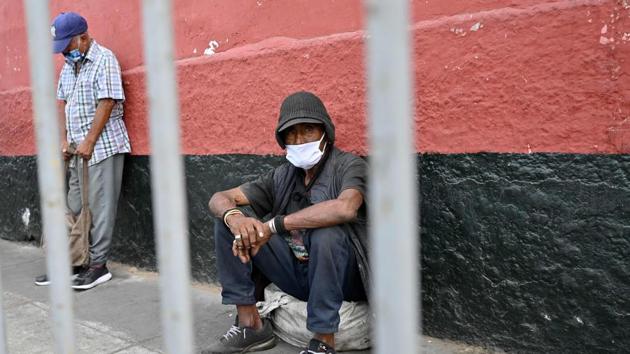Long-term containment measures key as Covid-19 cases may rise after lockdown: Study
The finding comes amidst a debate on whether the hard lockdown should be extended with the government clarifying on Monday that it had no immediate plans to impose further curbs beyond April 15.
India needs to urgently think of long-term infection containment measures because the ongoing 21-day national lockdown is unlikely to be enough to reverse the rapid rise in Covid-19 cases and rate of transmission (although it will help), a new study has suggested.

The paper, based on mathematical modelling of disease and demographic data by two researchers at the University of Cambridge, also concludes that old people in India are at particular risk of contracting the infection at home – more than global hotspots such as China and Italy – because of the high number of three-generational households in the country.
The finding comes amidst a debate on whether the hard lockdown should be extended with the government clarifying on Monday that it had no immediate plans to impose further curbs beyond April 15.
But that may be a mistake, the study suggested.
In their analysis, the researchers found that while a 21-day lockdown led to an immediate decrease in the number of infected people, the number rose sharply after the curbs were lifted. A second scenario in which a 28-day lockdown was imposed after five days of easing also showed that the number of infected people rose once the second lockdown was lifted.
But in two scenarios, the rate of new infections decreased. The first was a protocol of three consecutive lock downs of 21 days, 28 days and 18 days spaced with five days of suspension. If a single lockdown had to achieve the same impact, it would have to last 49 days, the modelling showed.
“While these numbers are hypothetical, it underlines the need to think of different strategies of containment after 21 days of lockdown. It also shows that the rate of rise of infection is steeper than the rate of decrease and it takes less time for infections to double and more time for it to halve,” said Ronojoy Adhikari, one of the authors of the paper.
“This essentially means that for every day of non-lockdown, we need more than one day of lockdown,” he added
The paper, slated to be published in the Physical Review Research Journal, noted two big differences between India and other global hotspots such as China and Italy: the big numbers of three-generational families residing in the same homes and the large number of young people.
Secondly, the model also showed that unlike Italy and China, the above-60 population and the below-30 population were in close contact at homes. Because the former demographic is high-risk for Covid-19, it made the home very important for anti-infection policy.
“This indicated that social distancing and isolation protocols are not just for workplaces and public spaces, but also for homes. Because of India’s huge youth population, they are at greater probability of contracting the disease, and then bringing them into homes and transmitting it to older people, who have high fatality risk,” said Adhikari.
The authors suggested three long-term responses: Social distancing and isolation to be practised in homes, especially by older people; a close watch on schools and colleges to check for young people catching the disease; and extensive testing to find out the extent of the outbreak.
“We suggest that even when the national lockdown is over, we need to look at keeping schools and colleges shut for some time. Or look at local lockdowns in hotspots, determined by extensive testing,” Adhikari added.
The study has made two important assumptions: that all cases of Covid-19 are symptomatic, and that the impact of the lockdown is instantaneous without any lag in implementation.
Get Current Updates on India News, Lok Sabha election 2024 live, Election 2024 along with Latest News and Top Headlines from India and around the world.




